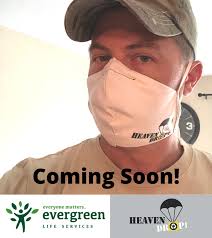Veteran Non-Profits: Supporting Those Who Have Served Our Country
Non-profit organizations play a vital role in supporting veterans and their families. These organizations provide a range of services, from financial assistance to job training, mental health support, and much more. They are often run by veterans themselves or by individuals who are passionate about supporting those who have served our country.
One of the most significant challenges that veterans face is the transition from military to civilian life. This transition can be difficult, particularly for those who have experienced combat or have been away from home for extended periods. Non-profit organizations provide a range of services to help veterans make this transition successfully.
One example of a non-profit organization that supports veterans is the Wounded Warrior Project (WWP). This organization provides programs and services to injured veterans and their families, including mental health support, career counseling, and financial assistance. The WWP has helped thousands of wounded veterans successfully transition back into civilian life.
Another example is the Fisher House Foundation, which provides free housing to families of military personnel who are receiving medical treatment at military medical centers. This organization has provided thousands of families with comfortable and supportive accommodations while their loved ones receive medical care.
Non-profit organizations also play a critical role in providing employment opportunities for veterans. The Veterans Employment Initiative (VEI) is an example of an organization that helps veterans find jobs by connecting them with employers who value their skills and experience. The VEI also offers job training programs and other resources to help veterans succeed in the workforce.
Finally, non-profit organizations provide vital mental health support for veterans experiencing post-traumatic stress disorder (PTSD) or other mental health issues related to their service. The PTSD Foundation of America is an example of an organization that provides counseling services and other resources to help veterans cope with these challenges.
In conclusion, non-profit organizations play a critical role in supporting our nation’s veterans. They provide essential services and resources that help veterans successfully transition back into civilian life, find employment, and cope with mental health challenges related to their service. As a society, we must continue to support these organizations and the vital work they do for our veterans and their families.
Frequently Asked Questions About Non-Profit Organizations for Veterans
- How do I start a non-profit veteran?
- What percentage of DAV donations go to veterans?
- What is the best non-profit for veterans?
- Is the Veterans Affairs a nonprofit organization?
How do I start a non-profit veteran?
Starting a non-profit organization that supports veterans can be a rewarding and impactful way to give back to those who have served our country. Here are some steps to help you get started:
- Research: Start by researching the needs of veterans in your community and the services that are already available. This will help you identify any gaps in services and determine what type of non-profit organization would be most beneficial.
- Develop a mission statement: Your mission statement should clearly define the purpose of your non-profit organization, its goals, and its target beneficiaries. It should also be concise and easy to understand.
- Choose a name: Choose a name for your non-profit that reflects its mission and is memorable.
- Incorporate: Incorporate your non-profit organization as a legal entity in your state by filing articles of incorporation with the Secretary of State’s office.
- Apply for tax-exempt status: Apply for tax-exempt status with the Internal Revenue Service (IRS) by filing Form 1023 or Form 1023-EZ. This will allow your organization to receive tax-deductible donations from individuals and corporations.
- Create a board of directors: Create a board of directors made up of individuals who share your passion for supporting veterans and have relevant skills and experience.
- Develop a fundraising plan: Develop a fundraising plan that includes strategies for raising money through donations, grants, events, and other sources.
- Establish partnerships: Establish partnerships with other organizations, both within the veteran community and outside it, to expand your reach and impact.
- Build an online presence: Build an online presence through social media platforms like Facebook, Twitter, Instagram, or LinkedIn to connect with potential donors, volunteers, partners, or supporters.
- Start serving veterans: Once you have completed all these steps, start serving veterans by providing them with the services they need most.
Starting a non-profit veteran organization requires time, dedication, and effort. However, with the right planning and execution, it can be a fulfilling and impactful way to support those who have served our country.
What percentage of DAV donations go to veterans?
According to the Disabled American Veterans (DAV) Charitable Service Trust’s financial statements for 2020, approximately 96% of all donations go directly to support programs and services for disabled veterans and their families. This means that only about 4% of donations are used for administrative and fundraising expenses. The DAV is committed to being transparent about their financials and ensuring that the majority of donations go directly to those in need.
What is the best non-profit for veterans?
It’s difficult to determine the “best” non-profit for veterans, as different organizations offer different services and support. However, there are several highly respected non-profit organizations that provide a range of services and support to veterans:
- Wounded Warrior Project (WWP): This organization provides programs and services to injured veterans and their families, including mental health support, career counseling, and financial assistance.
- Fisher House Foundation: This organization provides free housing to families of military personnel who are receiving medical treatment at military medical centers.
- Veterans of Foreign Wars (VFW): This organization advocates for veterans’ rights and provides a range of support services, including financial assistance, educational programs, and job training.
- Disabled American Veterans (DAV): This organization provides a range of services to disabled veterans, including transportation to medical appointments, assistance with VA benefits claims, and employment resources.
- Gary Sinise Foundation: This organization supports veterans through various programs that focus on mental health support, education initiatives, housing solutions for disabled veterans, first responder appreciation efforts, and more.
These non-profit organizations have proven track records of providing valuable support and resources to veterans in need. Ultimately, the best non-profit for a particular veteran will depend on their individual needs and circumstances. It’s always recommended to research several organizations before choosing one that best fits your needs or the needs of a loved one who is a veteran.
Is the Veterans Affairs a nonprofit organization?
No, the Veterans Affairs (VA) is not a non-profit organization. The VA is a government agency that provides services and benefits to eligible veterans and their families. It is part of the United States Department of Veterans Affairs, which is responsible for administering programs and services related to veterans’ healthcare, disability compensation, education and training, home loans, life insurance, vocational rehabilitation and employment, and more. The VA is funded by the federal government through taxes paid by American citizens.




